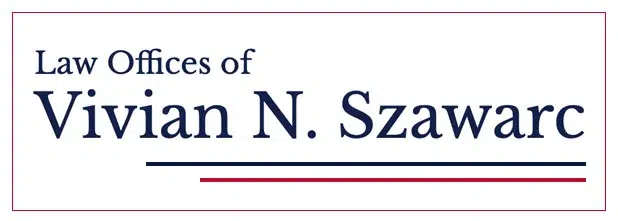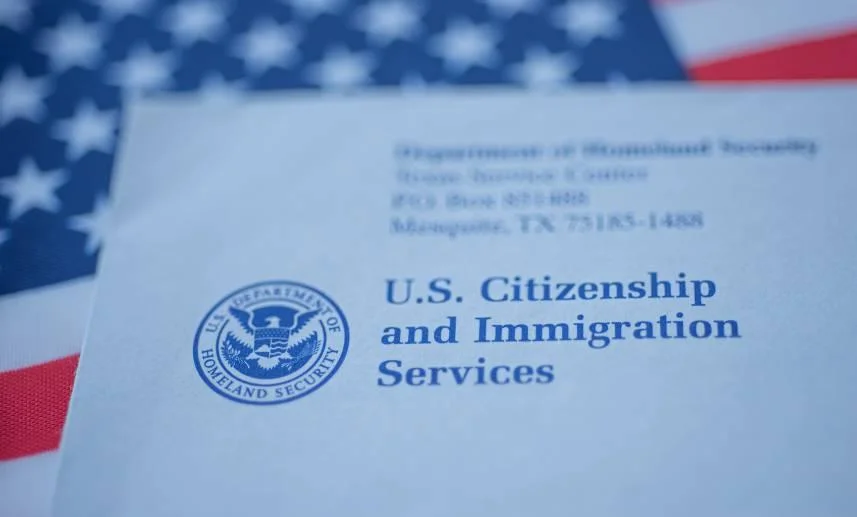Drug Possession: Drug possession laws criminalize the intent to possess illegal controlled substances, such as marijuana, methamphetamine, cocaine, LSD, “club drugs,” and heroin. These laws also punish the possession of “precursor” chemicals used in the manufacture of drugs. What constitutes drug possession can vary depending on the type of drug, the quantity, and the geographic location of the crime.
Drug Cultivation: Generally speaking, manufacturing controlled substances and illegal drugs is a crime in California. However, the cultivation of marijuana within certain limits is permitted for personal use. Charges related to growing or manufacturing drugs depend on the type of substance involved.
Drug Distribution: The “distribution” charge is typically applied when someone is accused of illegally selling, delivering, or providing controlled substances, which often occurs when someone attempts to sell drugs to an undercover officer. Trafficking, on the other hand, refers to the illegal sale and/or distribution of controlled substances.
Drug traffic: Interstate trafficking of illegal drugs is a federal crime. Sometimes it can be inadvertent to break the law in these cases. However, a federal drug case does not necessarily mean that your life is over. It is essential to have federal drug attorneys to guide you through the legal process and fight for the truth in your matter.
Understanding these different categories and how they apply to your particular situation is crucial to making informed decisions and seeking appropriate legal advice if you are facing drug-related charges.
If you are being accused of:
- drug cultivation
- Drug sales
- Manufacturing of a controlled substance
- drug conspiracy
- Personal use
- Drug transportation
- Prescription Drug Fraud
In relation to one of these substances:
- marijuana
- crystal methamphetamine
- Prescription drugs
- Cocaine
- Heroin
It is important to take into account the seriousness of the allegations and seek appropriate legal advice for your particular situation.
How many years in prison in the USA for drug trafficking?
Transporting illicit drugs within the United States is a serious crime at both the federal and state levels. The California Health and Safety Code, section 11352, establishes that transporting or importing controlled substances with the intent to distribute or sell them carries a prison sentence of three, four or up to five years. In addition, the convicted person will likely have to pay a fine, the amount of which will depend on the amount of illegal drugs trafficked.
How much is the fine for drug possession?
Possession of illicit drugs for the purpose of sale or possession of precursor substances for their manufacture constitute punishable offenses, which means that the accused could face prison sentences and considerable fines.
The fines applied to punish these crimes vary depending on the type of drug and the quantity or weight of the substances confiscated by the authorities. The Health and Safety Code (HSC) section 11372 states that any person convicted of violating section 11351 (crimes involving controlled substances such as narcotics) will be subject to a fine imposed by the court. This fine can range around twenty thousand dollars ($20,000) for each violation and could increase in the event of additional charges.
Legal assistance from a drug crime attorney can make all the difference in a defendant's legal process. It begins with preparing a strong defense aimed at possibly dismissing the charges, thus avoiding a trial. However, if the evidence is overwhelming and the judge's verdict appears imminent, a drug crimes attorney can negotiate with the court to achieve a more favorable resolution regarding charges and penalties. It is essential to keep in mind that, in no case, the fine will be used as a substitute for the prison sentence established by law.
Penalties for the crime of drug trafficking
Under the Health and Safety Code (HSC), penalties for drug trafficking offenses vary depending on the type and quantity of substances transported. Courts generally consider drug trafficking to be a serious crime that carries prison sentences that can range from one year to, in the most severe cases, life imprisonment. Additionally, these crimes can result in fines ranging from $100,000 to $20 million.
It is essential to recognize that there are circumstances that can significantly aggravate penalties for drug trafficking in California. Some examples include:
- Transporting drugs or precursor substances across the borders of non-contiguous states.
- Using minors to transport drugs or precursor substances.
- Drug trafficking involving substances scheduled as grade I on the drug schedule, including heroin, lysergic acid diethylamide (LSD), marijuana (cannabis), 3,4-methylenedioxymethamphetamine (ecstasy), methaqualone, and peyote.
These aggravating factors can result in even harsher penalties for those charged with drug trafficking in the state of California.
What other types of crimes arise from drug trafficking?
The Health and Safety Code (HSC) establishes various types of drug trafficking crimes in California, some of which include:
- Possession of a controlled substance without a prescription: Possession of any controlled substance classified as a narcotic drug without a formula or written prescription from a physician, dentist, podiatrist, or veterinarian licensed to practice in California is a crime and is punishable by the court with imprisonment and fines (Session 11350 of the HSC).
- Possession of a controlled substance with intent to commit sexual assault: Possession of certain controlled substances, such as opiates, opium derivatives, hallucinogenic substances, depressants, or any material containing cocaine, phenethylline, or N-ethylamphetamine, with the intent to commit sexual assault (rape), is considered a serious crime and is punished by imprisonment (HSC Session 11350.5).
- Possession of a controlled substance for sale or purchase for the purpose of sale: Possession of controlled substances classified as opiates, opium derivatives, or any material containing cocaine, phenethylline, or N-ethylamphetamine with the intent to negotiate for the purchase or sale is considered a felony and carries prison sentences of two, three, or four years (HSC Session 11351).
- Transportation of controlled substances: Any person who carries out or offers to transport, import, sell, administer or give away controlled substances classified as opiates, opium derivatives, or any material containing cocaine, phenethylline or N-ethylamphetamine in California, without a written formula or prescription from a professional licensed, will be sentenced to prison for two, three or four years (HSC Session 11352).
- Use of minors in crimes related to drug trafficking: The use of minors for the transportation, sale, administration or gift of the aforementioned controlled substances, or to sell said substances to them, is punishable by the court with prison sentences of three, six or nine years for those over 18 years of age ( HSC Session 11353).
- Drug manufacturing: This crime covers the production of narcotics or illicit drugs, such as methamphetamine or rock cocaine, as well as the possession of chemicals for the manufacture of illegal drugs.
It is essential to understand the seriousness of these crimes and seek appropriate legal counsel if you are facing drug trafficking charges in California.
How many years in prison for drug possession in the United States?
Possession of drugs within the United States without a formula or written prescription from a physician, dentist, podiatrist, or veterinarian licensed to practice in the country constitutes a crime that varies in severity depending on the type and amount of substance in question. The nature of this crime carries prison sentences in a state institution as punishment. For those charged with no prior convictions, the maximum prison sentence is one year. However, if the defendant has a history of drug possession or has been previously convicted of serious or violent crimes, such as murder, violent sexual crimes, sexual assault against children under 14 years of age, or vehicular manslaughter, the penalty for the crime of drug possession will be considerably more severe, as will the fine imposed.
If you have the services of a lawyer specialized in drug crimes, the accused could benefit from a reduced sentence by collaborating with the prosecution in the capture of leaders or the dismantling of drug trafficking networks. This type of negotiation can be an effective strategy for those accused of drug possession who wish to mitigate the legal consequences of their crime.
What is the most punishable drug in the USA?
In the United States, there is a wide list of drugs, substances and controlled products that are considered illegal if you do not have a medical formula or prescription. These substances are classified into five schedules by the United States Drug Enforcement Administration (DEA), based on their medical use and their potential for abuse or dependence. According to the Health and Safety Code, those who possess or traffic in Schedule I drugs will face investigations and the most severe penalties.
Schedule I includes all drugs, substances or chemicals that have not been approved for medical use and that are considered dangerous due to their high potential for abuse or physical or psychological dependence. Some examples of Schedule I substances include methamphetamine, heroin, lysergic acid diethylamide (LSD), marijuana (cannabis), 3,4-methylenedioxymethamphetamine (ecstasy), methaqualone, and peyote. These substances are subject to strict regulations and trafficking or possession of them without medical authorization carries serious legal consequences.
What happens if the police find drugs on you in California?
In California, a police officer has the authority to immediately detain you or issue an arrest warrant if he or she finds you involved in any of the following crimes:
- Possession of drugs for personal use without a prescription.
- Possession of drugs with the intent to sell them.
- Drug trafficking, which includes the transportation, purchase, sale or distribution of illegal substances.
- Drug manufacturing, which involves the production of controlled substances.
- Conspiracy to carry out any of the activities mentioned above.
It is important to note that possession of drugs without a prescription is considered a crime in California, and penalties vary depending on the circumstances of the case, ranging from minor to serious. In this context, it is essential to contact a lawyer specialized in drug crimes. This professional can challenge the legality of the detention, ensure respect for the rights of the accused, offer legal guidance and representation in court, thoroughly examine the evidence to seek the possibility of dismissing the case or find the best legal options for the benefit of the accused. . Legal assistance is essential to protect the rights and future of the individual accused of these crimes.
What quantity of drugs is considered for personal use?
In certain states in the United States, a decriminalization stance has been taken regarding the recreational and medicinal use of marijuana. A notable example is California, where people over 21 years of age have the right to purchase, possess and consume up to 28.5 grams of marijuana, which is considered an amount intended for personal consumption and does not constitute a crime. However, it is important to note that there are restrictions related to the consumption of this substance in public places and in the vicinity of schools, daycare centers or youth centers, especially if this occurs in the presence of children or adolescents. In addition, it is strictly prohibited to operate a vehicle under the influence of psychoactive substances such as marijuana.
On the other hand, regarding drugs other than marijuana, their possession, use or sale is not permitted under any circumstances. Should any amount of such substances be discovered, the individual will likely face charges of possession of a controlled substance, which could lead to a misdemeanor or felony, depending on the amount and circumstances of the discovery.
If you have been involved in an arrest and are facing charges related to drug possession, our drug crime attorneys can provide you with legal advice and representation. We will be in charge of safeguarding your rights throughout the entire legal process you face and we will employ various defense strategies to minimize the possible consequences of this type of crime.
We offer you the opportunity to schedule a free initial consultation, during which we will analyze your case, evaluate the legal options applicable to your situation and explain the possible ways to carry out an effective defense.
What happens if you get caught with drugs?
In California, as in several states in the United States, it is a crime to transport, sell, and import certain types and quantities of drugs or controlled substances. For example, in the case of marijuana, if a person possesses an amount greater than that permitted by law, they may face fines of more than $500, and depending on the circumstances, could be sentenced to up to 6 months in prison. prison.
Regarding drugs other than marijuana, which are classified as controlled substances, prison sentences can vary between 3 and 5 years. These penalties can be increased if it is proven that the individual transported the drug from California to a non-contiguous county, which could result in prison sentences of 3 to 9 years. In addition, there are circumstances and actions that can further aggravate the crime of transporting and possessing drugs. This includes the use or involvement of minors in the sale or distribution of these substances, the defendant's criminal record and the distribution of drugs in the vicinity of a school, daycare or youth center, which can lead to more severe penalties.
Facing drug possession charges is a serious situation and could become even more complicated if not addressed properly. Our drug crime attorneys have deep knowledge of the laws, procedures and conditions that apply in these cases. They will provide you with advice to ensure that your rights are respected and so that you face the legal process in a fair and equitable manner.
What is the most punished drug in the United States?
Heroin is considered one of the most dangerous and highly penalized substances in the United States. This drug is classified as a Schedule I (I) drug under the United States controlled substances law due to its highly addictive nature and the significant risk it poses to the health of those who consume it. In addition to its dangerous health effects, heroin also causes considerable social problems, as its production, sale and distribution are often linked to a series of crimes that negatively affect society as a whole.
The penalties a person could face for being involved in the manufacture, possession, or distribution of a Schedule I (I) drug such as heroin can be substantial and vary depending on different factors. These penalties can include large fines and prison sentences exceeding 3 years, depending on factors such as the amount of drugs involved, the specific circumstances of the case, and the evident intentions of the defendant.
Laws against drug possession in California
The state of California has implemented significant laws and codes related to the possession, use and sale of drugs, evidencing its intention to regulate and control these substances. One of the fundamental codes that addresses this issue is the California Health and Safety Code, which establishes crimes related to controlled substances and the respective sanctions and penalties. Particularly, some of the most notable drug laws are contained in Division 10 of this code, which addresses the Uniform Controlled Substances Act. This law focuses on defining and regulating aspects related to:
- Possession of any controlled substance without a prescription, including substances such as cocaine, heroin, methamphetamine, LSD and ecstasy.
- Possession of drugs with the intent to sell them, considered a serious crime.
- The sale, transportation or distribution of marijuana without a proper license. It is important to note that, although the possession of certain amounts of marijuana is permitted, its distribution without a license is considered a crime.
It is essential to understand that each charge related to a drug crime must be treated individually, as it is evaluated based on factors such as the amount and type of drug involved, as well as the intentions and specific circumstances in which the substance was found.
If you are facing charges for a drug-related crime in California, it is crucial to seek appropriate legal advice and representation to protect your rights and effectively address your legal situation.
Why should I hire a drug trafficking lawyer?
Being charged with a crime related to the possession, transportation, or sale of drugs in the United States can lead to serious consequences, such as long prison sentences, high fines, and a criminal record. For this reason, it is very important to hire the services of a lawyer specialized in these types of accusations. Your lawyer could make the difference, legally supporting you so that your rights are respected, a fair process is carried out and you ensure a favorable verdict.
The lawyers specialized in these cases have outstanding academic training and are specialists in the laws and regulations that regulate judicial processes related to drug trafficking. They can provide you with legal options tailored to your legal process, in order to build effective defenses, aimed at dismissing the charges filed, and in delicate cases, reducing the consequences, penalties and fines.
These lawyers are very familiar with the procedures used in our legal system; They know experts from other areas of knowledge who can support the collection of evidence, testimonies and all types of evidence that can be used in your favor. Additionally, they will provide you with continuous advice so that you act appropriately before the courts, and in general, throughout the criminal process. We will accompany you unconditionally to obtain the best possible results.
What is actual possession and constructive possession of drugs?
The terms actual possession and constructive possession of drugs are used to refer to drug possession. However, there is a marked difference between one and the other. Next, we explain the specific meaning of each of these two terms:
On the one hand, actual possession refers to the physical possession of some type of drug or controlled substance. That is, the substance was found in the person's possession, whether in his hand, his pocket or in a container that is under his control.
On the other hand, constructive drug possession refers to the possession of drugs in a place of your property, over which you have control, and therefore, the ability to access the drug. This denotes that the drug belongs to the person in control of the property where the illegal substances were found.
Both actual possession and constructive possession are considered a crime, as long as the amount of drugs found exceeds the amount permitted by law. It is worth noting that, if it is possible to demonstrate that in addition to possession of drugs, there was the intention to sell them, the crime can be considered serious and has greater legal consequences.
If you have been accused of drug possession, in any of the above situations, it is important that you seek legal help from a lawyer specialized in drug crimes.






